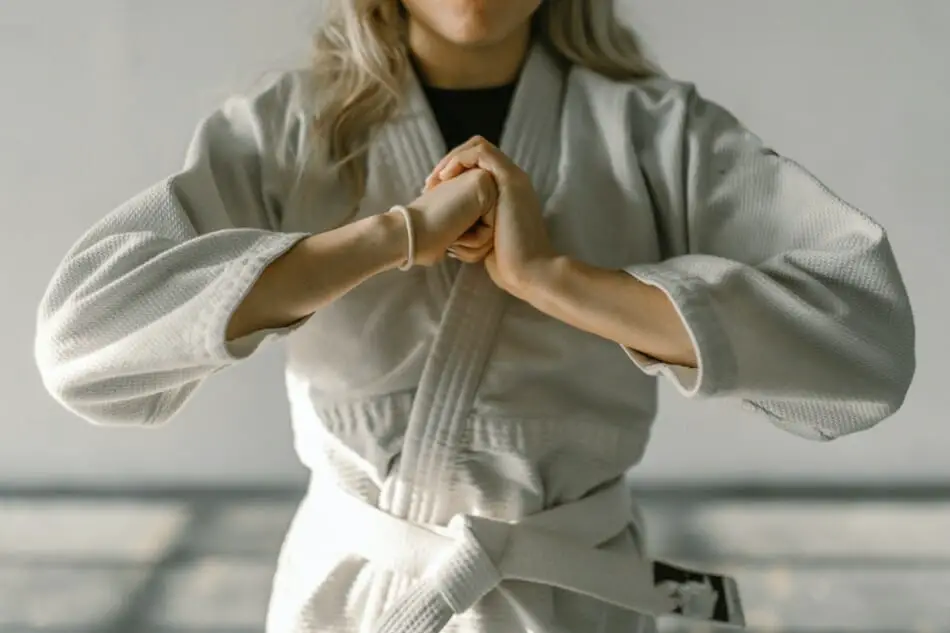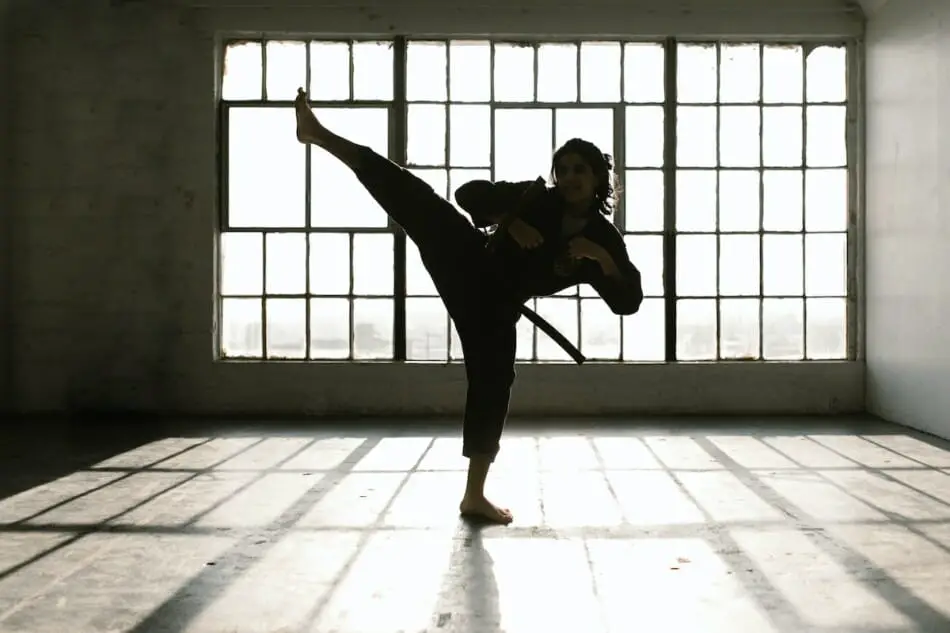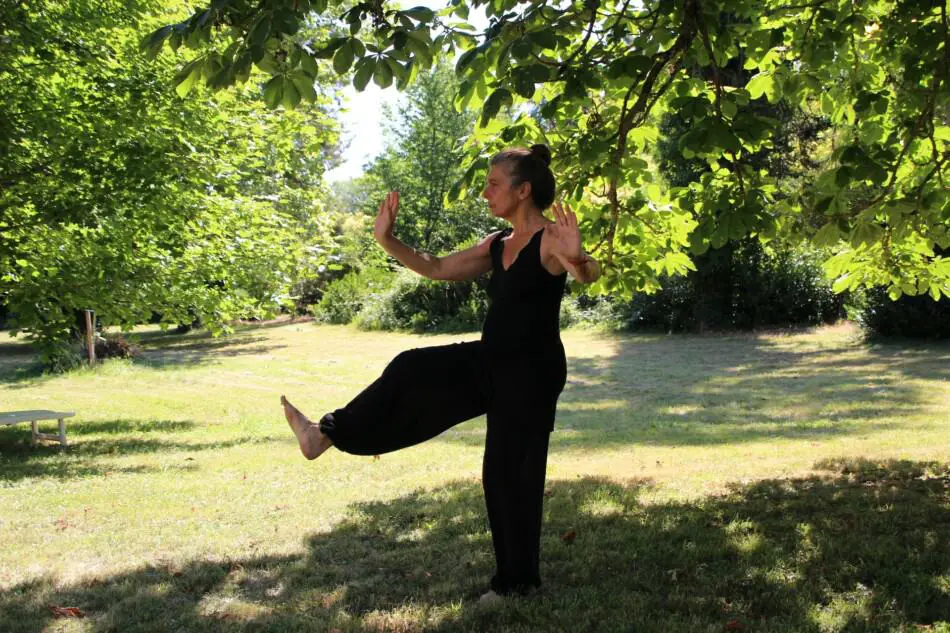Kung Fu is a complex traditional Chinese martial art with many different styles, from the traditional Wing Chun to animal styles like Tiger and Monkey, and other variations that include weapons and grappling techniques.
So, can you learn Kung Fu on your own?
It is best to learn Kung Fu from an experienced teacher. There are some aspects of King Fu that you can learn on your own (e.g. terminology, fitness & conditioning exercises, basic techniques, stances), but you will need a more experienced practitioner to guide you, teach discipline, give feedback and avoid technical errors.
With the advent of online classes and the availability of just about anything online, the question is being asked whether you can learn Kung Fu on your own, so let’s explore what you could and couldn’t learn and why.
Learning King Fu On Your Own Could Result In Technical Errors
Kung Fu dates back thousands of years, and the systems of instruction and techniques have been passed down through the generations from the instructors to their students.
This lineage is the key to maintaining the effectiveness of the techniques and traditions of the style.
Here is where learning Kung Fu on your own becomes difficult. You see, it’s all good to mimic techniques as you see them in your online training course or online class, but the reality is that an online instructor cannot truly see whether your technique is correct, and this can be due to the number of people in the class, or the camera angle or lighting in your environment.
If we look at the basics of Wing Chun Kung Fu, punches, kicks, stances, and forms all, form part of the overall training, skill acquisition, and advancement through the ranks.
There are specific ways of executing the technique, from the position of the first to the line of attack and striking points on the target.
The same would apply to kicking techniques with the position of the foot, the knee, and the contact points on the foot, whether on the heel, instep, or ball of the foot, depending on the type of kick being executed.

Even slightly incorrect positions will render your technique less effective in execution.
Whether in a training, sparring, or combat environment, you will have a false sense of security and ability that will be exposed if you decide to go to a live class with proper instructors.
These technical faults can result in injury to yourself when practicing, especially if you are a beginner, as instructors are specially trained to work with beginners to cultivate proper technique in slow and repetitive exercises.
With Wing Chun specifically and Kung Fu in general, the technical aspects of executing strikes and kicks are critical as the style was designed so that smaller, lighter practitioners could overcome larger, stronger opponents using smaller, faster techniques, and if the concepts and theory behind these techniques are not properly learned, you are effectively wasting your time.
You will probably need to start again if you decide to attend an actual class.
-> Read Also What Is An Autodidact?
Kung Fu Classes Are Properly Paced And Managed To Ensure Correct Progress
Another consideration with learning Kung Fu yourself is that you may be tempted to rush ahead with the syllabus instead of staying focused, disciplined and patient; people learning King Fu on their own could well move on to more advanced techniques when the basics are not properly assimilated and without supervision and approval of an instructor.
Fundamentals in any martial art are critical; it’s the equivalent to the foundation phase in education as this is the base of the development and understanding of more advanced theory and technique, and without it, the student will have difficulty in executing and understanding.
In a real class, beginners are carefully and closely supervised by qualified instructors to ensure that basic elements like posture, hand and foot positions, breathing, and stances are correctly executed time and again before advancing them to the next level of training.
Learning Kung Fu on your own may feel like it’s going faster than it would in class, but you may find that going to an actual class, your technical faults will be exposed, and you would need to re-learn the basics to the satisfaction of the instructor.
-> Learn More about Self-Learning vs. Classroom Learning: Which Is Better?
You Don’t Have Proper Partners When Learning Kung Fu On Your Own

Combat styles like Kung Fu, Krav Maga, Karate, and Jiu Jitsu require training with partners so that you can see whether your technique is effective, and instructors or seniors strictly supervise this sparring or simulated combat.
These techniques harm or kill when executed correctly and at full power. Very seldom will techniques be done at full force in a class environment unless the ‘attackers’ are properly protected from injury.
Using techniques at speed with simulated attackers is an integral element in just about every combat martial art in the world, and not only is it critical for the defender, but it’s also vital that the attacker understands what is going to happen and is prepared for it so that there is virtually no risk of injury.
Grabbing your brother or father and testing techniques on them is NOT advised.
You can easily injure them as you don’t know how much force to apply and incorrect application can easily damage bones, joints, muscles, and ligaments – in both you and your’ partner.’
This is a major reason that learning Kung Fu on your own is not advisable, as there is no direct supervision to ensure that you and your partner are safe during the training and sparring.
You would be liable and responsible if you cause injury or worse to a partner when not under supervision.
Many schools do not encourage their students to train techniques with people unfamiliar with the method; you may find yourself in deep trouble with your Sifu if you did this, and for a good reason.
Also, consider that you won’t have exercise partners to assist with strength and flexibility training, so while you can do some of these alone, you won’t get the full benefits of these fundamental physical elements when you learn Kung Fu on your own.
There Is No Sparring When Learning Kung Fu On Your Own
With Kung Fu, like Karate and Tae-Kwon Do, sparring is another vital aspect as it teaches application in simulated fluid combat, fitness, and conditioning.
Even if you have a bag or wooden dummy, neither of that hit back, so your defensive abilities in sparring won’t be realized.
This will adversely affect your skill levels, and should you opt to go to an actual class, you will find you lack mental strength in sparring, and this can be a very steep learning curve as you discover that where you thought you were, is not where you are, and this can be disheartening.
Sparring is the precursor to actual combat or competition in which contact is permitted with control. Without proper supervision, you won’t learn how to control your striking in that situation, which will hamper your progress in the style.

Learning Kung Fu On Your Own May Give You A False Sense Of Ability
One of the biggest concerns with learning Kung Fu on your own is that without direct assessments of your ability and technique, you may find yourself imbued with a sense of mastery and confidence as you can emulate the techniques in your online training videos.
Now, while this is a good thing in improving your ability, it does not in any way confer an actual combat mindset or ability to defend yourself in a real-life scenario.
In class, there are more subtle elements that experienced instructors impart, and the development of the combat mindset is one of those.
This is part of the syllabus, and qualified instructors with this kind of experience pass that on during these one-on-one sessions, and that knowledge is not something you would be likely to learn on your own, as online training is limited in some ways.
While it can be accessed anywhere in the world, the deeper aspects of Kung Fu are difficult to instill in virtual environments.
You can have every technique in the book, but lacking a proper warrior mindset and true confidence in your ability can get you in trouble.
If you believe that learning Kung Fu yourself for six months online gives you the skillset to get into a streetfight and expect to win, you may find yourself contemplating that from a hospital bed!
You Miss The Class And System Culture Learning Kung Fu On Your Own
One of the great experiences of training in Kung Fu in an actual class and training hall, or Kwoon as it’s known in Chinese, is the feeling of that environment.
You get a real sense of the school and style’s history, its instructors and masters, which is almost spiritual.
The sounds, smell, and feel of the hardwood floors, the rows of weapons, certificates, and pictures adorn the walls of Kung Fu training halls imbue that sense of belonging and commitment as you can see where you are training when you watch senior students and instructors in action.
Kung Fu has a colorful history filled with legends and stories, which enriches the student’s experience in a real class, but diminishes that element if you are learning it alone.
Part of this is the commitment to make classes on time and to complete training to advance levels through grading, which are another exceptional experience in any martial art.
Another aspect of being in an actual school is the social element.
You meet other people of similar skill levels and from different backgrounds and cultures, and you all train (and suffer) together, and this builds bonds and friendships that can last a lifetime; learning on your own doesn’t provide this aspect.

Learning Kung Fu On Your Own Allows You To Opt Out Of Commitment
Herein lies another potential pitfall when learning Kung Fu on your own – commitment. When you are enrolled in a school, you have an inherent responsibility to attend classes as there are repercussions should you miss a class for trivial reasons.
Learning Kung Fu so that you become proficient takes dedication, time, and most of all, commitment, and if you are doing it because it seemed like a good idea at the time to start an online class, without the proper dedication, you are wasting your time.
But, when you are training on your own, and you have the training videos available to you, should you decide that you don’t feel like doing the class at the appointed time, there is no real consequence for that, as you can watch or catch it up later during the day or week.
Should You Learn Kung Fu On Your Own – The Moral Responsibility
From the discussion above, several compelling reasons you should not learn Kung Fu on your own.
While some online proponents may argue otherwise, learning a skill that can injure or kill other human beings is NOT something to be taken lightly.
Training under properly qualified instructors and in conditions where the safety of participants is a priority is always better when learning martial arts as this ensures correct technique and application are understood correctly.
In the school environment and culture, there is a deep respect for technique and the understanding that this should only be used in defense and not for aggression.
But as you know from countless movies, that bad guy that learn martial arts use it to create fear and dominance for their benefit.
One of the responsibilities you accept when you enroll in Kung Fu training is the moral and ethical responsibility that you will not use your skills to harm others unless in defense of yourself or another person.
Teaching potentially lethal techniques online mean that there is a risk that the person learning them does not have this ethical and moral compass and seeks to use these skills to the detriment of others.
In a school environment, instructors will be aware of this and work to ensure that students maintain the ethical standards of the style and school and act honorably as representatives of the school and should they see someone that is not operating within the moral code, they can either discipline them or expel them.
In much the same way that someone buying a gun may seem OK and pass the seven-day waiting period, their true motives may not be so positive, and sadly, that will only become evident after the fact.
What Can You Do When Learning Kung Fu On Your Own
There are some aspects of Kung Fu that you can certainly do on your own: conditioning, learning basic techniques, and terminology, but this will depend on your circumstances and motivation to learn this martial art.
Kung Fu is a physically demanding discipline requiring students to be fit, flexible and conditioned for striking and here is where home training can benefit.
There will be countless videos and online resources that will offer exercises, fitness, stretching regimens, and conditioning regimens that you can do twice or three times a week to build up the basic skills necessary for Kung Fu.
For example, suppose you are away from society for some time and intend to join a Kung Fu school on your return.
In that case, you can learn the school terminology, the basic technique names, school history, and culture and improve your fitness, flexibility, and conditioning.
Finding stretching exercises and cardio training specific to Kung Fu and setting up training sessions twice a week will give you an advantage when you return and join up, as you will understand the terms and exercises when you do them for real.
While you would probably not get the same intensity of workout as you would in a live class, doing this is better than doing nothing, and you can also develop your conditioning for your hands, feet, forearms, wrists, and shins by using the wooden dummy to train with.
If you can commit to these sessions while on your own and maintain that schedule, this will show it’s value when you do join the school, and it will test your resolve and commitment as it takes more to get up and do this when the only responsibility you have for your training is to yourself.
You can immerse yourself in the culture and history of your chosen style and learn as much as possible about the school and the techniques.
You also can watch thousands of videos on the type, from competition to training techniques and gradings.
If you are going to pick an online training course, do your research and find an instructor or school that is well-established and has credibility and certification, with proper lineage and history, so that you are confident that you are getting traditional formal instruction.
-> Learn more about the 7 best websites for self-learning
Conclusion
It would take about eight to ten years to reach an actual school’s black belt equivalent in Kung Fu.
It would be virtually impossible to realistically achieve this learning Kung Fu on your own as you would reach a point where you would require proper in-person instruction to progress beyond intermediate or beginner levels.
Yes, there are certain elements of Kung Fu you can learn effectively on your own, but this is limited to basics, terminology, and fitness.
If you really want to learn Kung Fu properly, joining a reputable school is the most honorable way.
Resources
- https://dojolifehq.com/learn-kung-fu-at-home
- https://gaming.com.tn/technology/can-you-learn-kung-fu-on-your-own-78130/
- https://www.wikihow.com/Learn-Kung-Fu-Yourself
Note: The Writer is a former martial arts instructor in a traditional Korean style and has more than 30 years of martial arts experience, and has represented at national and international levels. Much of this content was written from personal experience and perspective.






